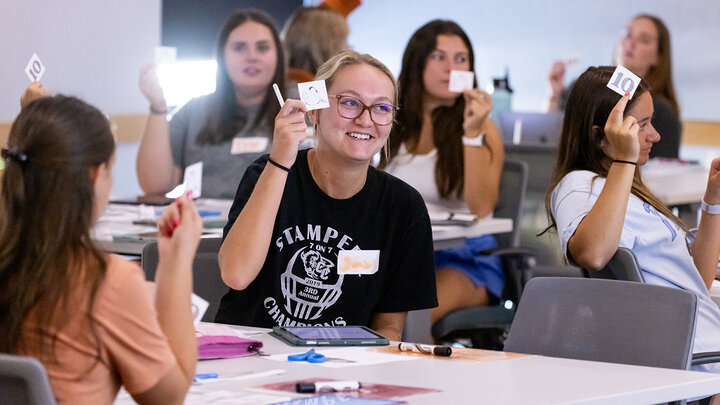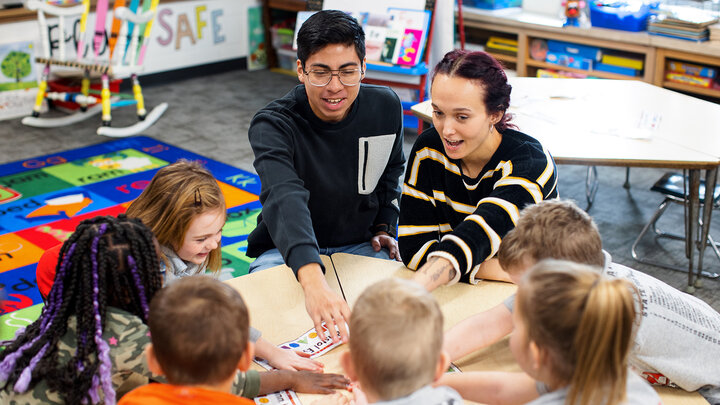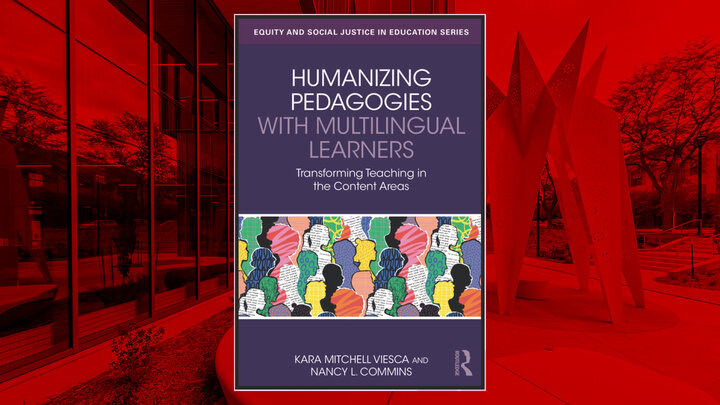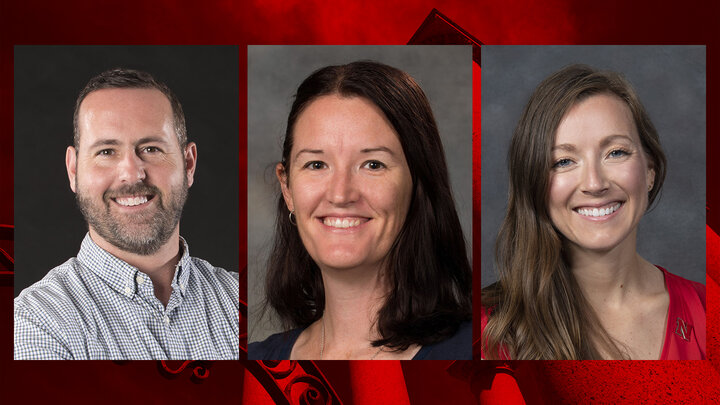While the state of Nebraska urgently works toward addressing literacy needs and improving the reading proficiency of the state’s third graders, the University of Nebraska-Lincoln’s College of Education and Human Sciences is elevating its current efforts to ensure its preservice teachers are equipped to meet those needs.
As part of their preparation, Husker students studying elementary education receive at least 19 credit hours in literacy-focused courses and practicum experiences, beginning with two core content courses and culminating in providing one-on-one tutoring to a struggling reader in the Kit & Dick Schmoker Reading Center prior to student teaching.
“I think the biggest strength of our program in terms of its design is when you are done with our sequence of courses, it’s not just that you can teach reading, but you can teach readers,” said Nick Husbye, associate professor in teaching, learning and teacher education. “You can teach actual students both at scale with a room full of students, which teachers have to do every single day, but also have the experiences of differentiating within small groups and individual students.”
Husbye instructs two courses on teaching reading and language arts in elementary that lay the foundation for Husker students to be able to teach children how to read. This includes things like how words are divided into syllables, what sounds certain letters make, the difference between phonological and phonemic awareness, and how to help children write simple sentences.
“My job in the literacy block is to equip our students with as much core content knowledge as possible,” Husbye said. “In that core space, I’m working with getting students who are going to be teachers prepared to teach 90% of kids, 90% of the time.”
Husker students gain additional instruction and experience through courses in children’s literature and teaching multilingual learners. For the final course of the sequence, students learn to adapt what they have learned to fit the needs of students who need more support.
Emily Fisher, assistant professor of practice in teaching, learning and teacher education, and co-director of the Schmoker Reading Center, says reading struggles in children are the rule, not the exception.
“Sometimes when students come to my class, we have to address this misconception that they’re not going to have as many students who struggle with reading in their classrooms if they’re going to be general educators,” Fisher said. “That is not the case at all. We know that reading difficulties are prevalent. We dive deeper into the content, thinking about how you make decisions, how you can be a reflective practitioner, and how you use that data and content knowledge to then make instructional choices.”
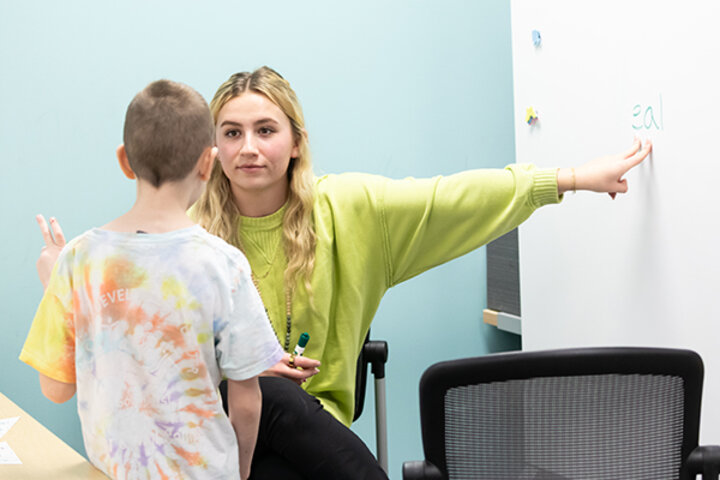
At the Schmoker Reading Center, students studying elementary education, early childhood education and special education all put their skills into practice by providing one-on-one tutoring for children who need extra support in reading. During the fall and spring semesters, Husker students tutor twice a week for their practicum experience. This experience helps prepare Husker pre-service teachers while providing much needed literacy support to area K-12 students.
“That application part is really cool because it is the first time that students have their own mini classroom,” Fisher said. “We use the science of reading to inform instruction. They learn how to give assessments and then analyze and interpret them.”
Marisa Hoins, a 2020 graduate of the elementary education and special education (K-6) program, now teaches special education at Central Elementary in McCook, Nebraska. Although she says reading was her least favorite subject growing up, her experience in the CEHS program helped reshape her perspective.
“One of the most important lessons I took away from my preparation is that the student always comes first,” Hoins said. “Student-centered learning and capitalizing on their interests can make reading fun and meaningful, even for struggling readers. My preparation gave me the mindset that all students can be successful if we provide the right supports and tailor instruction to their needs.”
In Nebraska, helping children become successful readers is one of the highest priorities for the State Board of Education. According to data from the National Assessment of Educational Progress (NAEP), Nebraska reading scores continue to be near the national average but have declined in recent years.
The Nebraska Literacy Project was approved by the State Board of Education in February 2025 with stated goals to 1) increase third grade proficiency on NSCAS ELA to 75% by 2030; 2) increase the percentage of Nebraska K-3 students who meet the Nebraska Reading Improvement Act approved assessment thresholds; and 3) ensure 100% of Nebraska educator preparation programs are implementing evidence-based instruction for teachers grounded in the science of reading.
Fisher noted that helping children succeed in reading is more than simply understanding the content.
“Although we are talking about reading content, I talk with students about how we can zoom out as well,” Fisher said. “You can’t teach science and have them read a science text without incorporating reading. In math, vocabulary is very important, especially with word problems. Everything that we talk about for an elementary teacher, reading crosses over everything.”
Hoins added that the impact of reading success extends beyond classrooms as well.
“Literacy is the foundation of all learning, and strong teacher preparation ensures that every child has access to success,” Hoins said. “Strong literacy instruction not only impacts academic achievement but also strengthens our communities by empowering students to grow into confident, capable learners.”
College of Education and Human Sciences
Child, Youth and Family Studies
Special Education and Communication Disorders
Teaching, Learning & Teacher Education
Strong Communities
